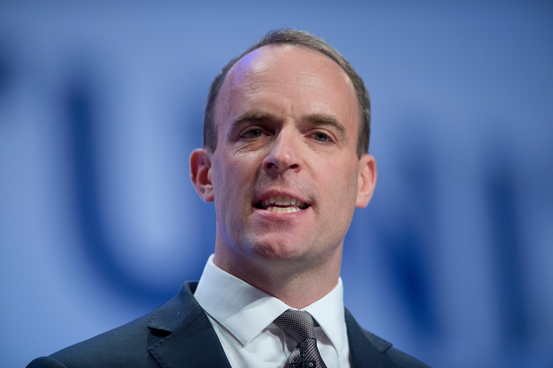Immigration minister Robert Jenrick is expected to announce today that two RAF bases in Essex and in Lincolnshire will be used to house those waiting to have asylum claims processed.
The government is also thought to be considering using ferries or converted barges for a similar process.
Deputy prime minister Dominic Raab confirming this morning that ministers will use such “vessels” to house asylum seekers “where it is appropriate”.
Asked how many ferries or barges could be bought by the government for this purpose, Mr Raab insisted: “We have got to deal with this”.


He told BBC Breakfast: “We will look at the whole range of options, low-cost accommodation, ex-army barracks and where it is appropriate, as has been used elsewhere in Europe and I think in Scotland as well, vessels if they can safely and responsibly be used”.
He added that the government must stop using hotels to house migrants because of cost and the fact it also “increases the pull factor” for people to make the journey across the English Channel in a small boat.
Downing Street has emphasised that they want to stop asylum seekers staying in hotels due to a claimed cost of £6.8m a day.
Mr Raab later told Sky News: “Nothing’s off the table. We must end this perverse incentive through the hotels and more generally with the hospitality that in a broader sense this country gives, encouraging the wrong people, which is the criminal gangs and illegal migrants, to make these very dangerous journeys. Barges would be one possible option”.
The government’s proposals will be set out in the House of Commons this afternoon by the immigration minister Robert Jenrick.
Under the new scheme, about 1,500 people could be kept at RAF Scampton in Lincolnshire which was previously home to The Red Arrows aerobatics display team and the Dambusters. The other base is RAF Wethersfield in Essex.
Ministers are expected to argue the living conditions meet the government’s minimum legal obligations while toughening its approach to counter the “pull factor” of asylum hotels and reducing cost.
The move comes as the illegal migration bill entered its committee stage in the House of Commons this week.
If passed, the new measures will see migrants and asylum seekers who enter the country via the Channel “detained and swiftly removed”.
This would include families with children, and although those under 18 will be able to lodge an appeal, they could be deported once they reach adulthood.
At the liaison committee yesterday, the prime minister defended plans to detain child migrants as part of the new bill, claiming that excluding them would serve to “incentivise” criminal gangs to bring them to the UK.
Mr Sunak told the group of committee chairs: “The intention of this policy is not to detain children, but it’s important that we don’t inadvertently create a policy that incentivises people to bring children who wouldn’t otherwise come here.
“Otherwise you create an incentive for a criminal gang to bring a child with them when they otherwise wouldn’t be, and I don’t think that is a good thing.
“We don’t want to create a pull factor to make it more likely that children are making this very perilous journey in conditions that are appalling”.

